Depression is something that affects millions of Americans every year — how many more millions worldwide is something we may never know. And while much of the freedom, autonomy, and self-satisfaction that come from freelancing can be a mental health boost, freelancers are also strategically located in the nexus of factors that can contribute to depression. As you plot out your work-from-home (or from anywhere!) career, take into considerations ways you can ameliorate some of these risk factors for depression while freelancing, if not eliminate them all together.
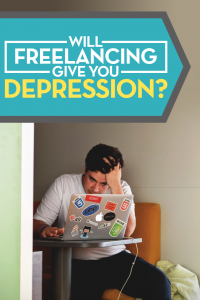
Isolation
Not always, but often, freelancing means working by yourself — physically, if not entirely (aside from emails with clients). As a freelancer, how many times have you told someone about your career and heard a response along the lines of “I could never work from home. I’d be too lonely!”? Whether or not you require water cooler chatter to thrive, isolation is a real concern that you need to address. It’s a contributing factor to depression in many life circumstances, including relocation, first-time parenthood, and, yes, freelancing. Find ways to work live interaction into your day, whether it’s by having lunch with a friend, skyping with a mentor, or making use of a nearby coworking space.
Being Stuck Inside
For many freelancers, work basically means staring at a computer screen all day. It’s easy to get roped into sitting all day, every day, in front of the computer, but there’s a danger to this, and it’s not just of the “sedentary lifestyle” variety.
Nothing counteracts the symptoms of mild depression quite like fresh air does. You don’t even have to go anywhere — just being outside, whether rain or shine, cold or hot, dark or light, has a positive effect on mental health. Of course many people respond well to sustained activity in the sunshine (like a walk around the neighborhood), but simply crossing the threshold and getting out-of-doors every day can make a difference in your long-term mental health.
Poor Diet
Unhealthful food choices are responsible for overall deterioration, and this makes sense. But while it’s easy to feel the waistband get tighter and see numbers on the scale creep upward, it’s not always easy to see the correlation between Cheetos-for-lunch and a sinking mental health state. Nourish your body’s health, yes, but also know that doing so will nourish your mind’s health –– not to mention silencing your inner judge and critic (at least as far as your food choices go).
Poor Sleep
Many of us freelancers spend a lot of time staring at screens — computer screens, tablet screens, smartphone screens…. These screens are fine for working, but studies are beginning to show that they disrupt our ability to shut down and get ready to for sleep at night. If you can, stop looking at your screens at least an hour before going to bed. Two hours would be better.
It’s a good idea not to have your computer in your bedroom, but if you must, consider using special software like Flux to set your screen to a brightness and color scheme that won’t be as disruptive for your night-time brain, or revert to old-school pen and paper to jot down those middle-of-the-night ideas. (And here’s my favorite tool for capturing those ideas that crop up when I’m in the shower.) There’s a strong link between depression and poor sleep, so do whatever you can to protect your crucial nights.
Stress and Anxiety
Stress and anxiety are not uncommon for freelancers, especially those just starting out. Many of us are freelancing as sole providers, and staying in the black falls squarely on our shoulders. Factor in the pressure of major responsibilities like mortgages, children, and/or healthcare, and it’s easy to get worked into a tizzy of stress and anxiousness. The best thing you can do for yourself when you’re feeling the pressure of stress and anxiety is to find a way to build some margin into your deadlines, your budget, and your overall time. Aim to finish your projects ahead of the deadline (and set deadlines to land beyond the time you can reasonably expect to finish, whenever possible) so that you don’t have major deadline pressure hounding you.
Take shortcuts with meal prep by buying pre-cut vegetables or cooking twice the amount of food you need and freezing half of it. Schedule in free time for yourself every morning and every evening so that you can have some guilt-free non-work to avoid working-working-working every second of every day. Wherever you’re feeling the most pressure, build in some margin to give yourself freedom. It will work wonders on your psyche.
Frequent Rejection
It’s probably not about you when a client chooses not to work with you or doesn’t like the (admittedly awesome) work you’ve turned in. You are a rock star. But it can feel like a real blow when our work isn’t received as well as we’d like it to be.
The risk of rejection runs very high in freelancing, and when we’re too sensitive to it or take it too personally, we’re priming ourselves for a mental health dip. Don’t let rejection get the best of you — acknowledge it, choose not to dwell on it, and move forward. Yes, it hurts — and sit with the hurt long enough to acknowledge the very real pain that it is — but then get right back to work.
Dwelling on the rejection will leave you stuck in the past, when what you need to do is move forward. Taking action will often boost your spirits, simply by the force of “movement” and therefore accomplishment.



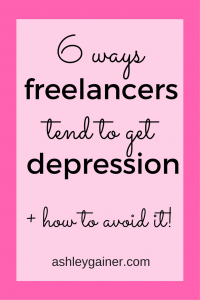

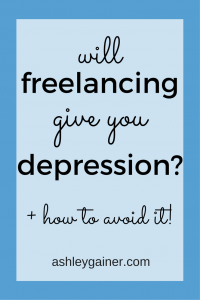

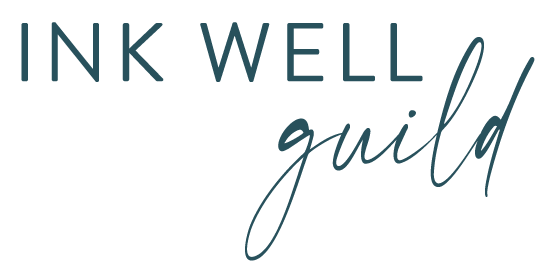
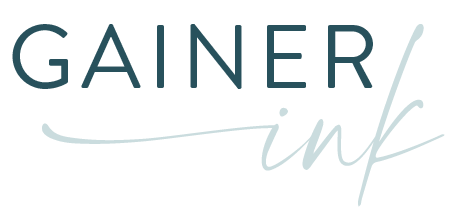
Pingback: Kate's 7 Rules for Freelancing